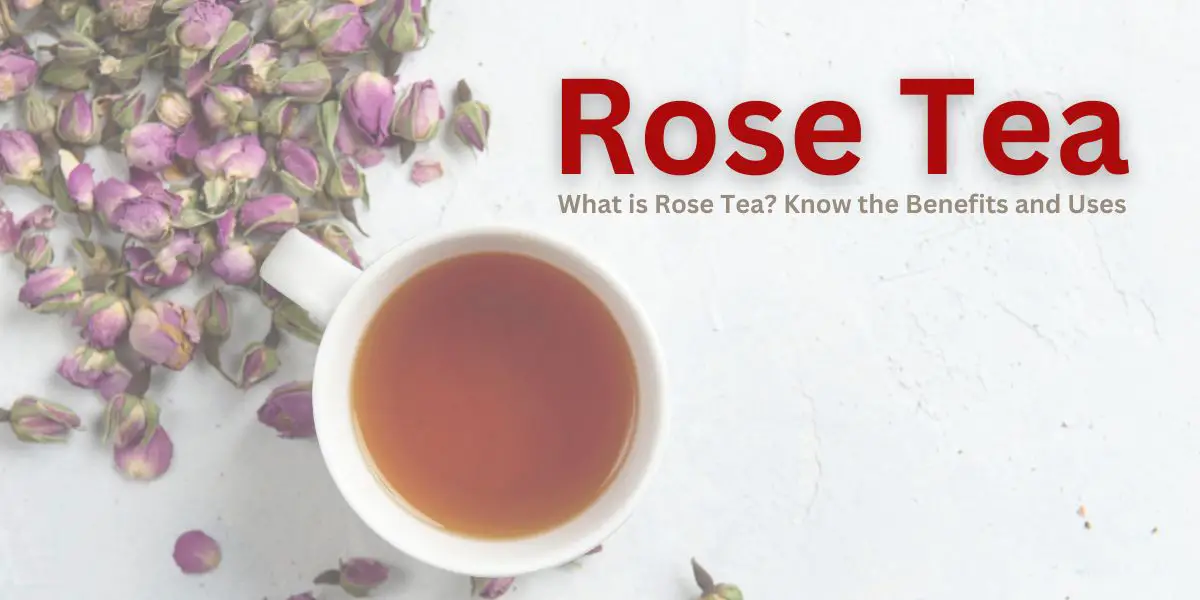The enchanting aroma of rose tea, a beverage with a rich historical legacy, has been captivating tea enthusiasts worldwide. From its diverse varieties to potential health benefits and culinary uses, rose tea is more than just a refreshing drink. Let’s delve into the world of rose tea and explore its benefits and uses in this aromatic journey.
Introduction
A. Definition of Rose Tea
Rose tea, derived from the infusion of rose petals, is a fragrant and soothing beverage that has been enjoyed for centuries. With a delicate floral flavor, this tea offers a unique sensory experience that goes beyond conventional teas.
B. Historical Significance
Dating back to ancient civilizations, rose tea has been embraced for its medicinal properties and symbolic significance. Cultures across the globe have incorporated rose tea into their traditions, making it a beverage with a timeless allure.
C. Rising Popularity
In recent times, there has been a surge in the popularity of rose tea, driven by its perceived health benefits and the growing trend of herbal teas. As people seek natural alternatives, rose tea has emerged as a flavorful choice, capturing the hearts of tea enthusiasts globally.
Varieties of Rose Tea
A. Different Types of Roses Used
Not all roses are created equal when it comes to making rose tea. Exploring the various types of roses used in tea production adds a layer of complexity to this aromatic journey. Each type contributes distinct flavors and aromas, creating a diverse range of rose teas.
B. Herbal Blends and Combinations
Beyond pure rose tea, herbal blends and combinations offer exciting variations. Blending roses with other herbs and botanicals enhances the taste profile, opening doors to a myriad of flavors that cater to diverse palates.
Also Read: Nutrition value of Black Grapes and its benefits
Health Benefits
A. Rich in Antioxidants
Rose tea is a powerhouse of antioxidants, known for their ability to combat free radicals in the body. Antioxidants play a crucial role in supporting overall health and well-being.
B. Potential Immune System Boost
Studies suggest that the compounds found in rose tea may contribute to a strengthened immune system, providing a natural defense against common illnesses.
C. Stress Reduction Properties
The calming aroma of rose tea has been linked to stress reduction and relaxation. Incorporating a cup of rose tea into your daily routine may offer a serene escape from the hustle and bustle of life.
Culinary Uses
A. Rose Tea in Cooking
Beyond a beverage, rose tea can be a delightful addition to various culinary creations. From desserts to savory dishes, the subtle floral notes elevate the gastronomic experience.
B. Blending with Other Beverages
Experimenting with rose tea in mixed beverages opens up a realm of possibilities. Cocktails, mocktails, and other blended drinks showcase the versatility of this floral infusion.
Beauty Benefits
A. Skincare with Rose Tea
The beauty benefits of rose tea extend beyond the cup. Learn about incorporating rose tea into skincare routines for radiant and healthy-looking skin.
B. Hair Care Tips
Discover surprising ways in which rose tea can enhance hair health. From soothing the scalp to promoting shine, the natural properties of rose tea contribute to overall hair well-being.
Potential Side Effects
A. Allergies and Sensitivities
While generally safe, rose tea may pose risks for individuals with allergies or sensitivities. Understanding potential side effects ensures a safe and enjoyable tea-drinking experience.
B. Moderation and Consultation
As with any herbal remedy, moderation is key. Consulting with healthcare professionals ensures that rose tea aligns with individual health conditions and medications.
Sustainability
A. Ethical Sourcing Practices
The demand for rose tea raises questions about sustainability. Delve into the importance of ethical sourcing practices to ensure a positive impact on the environment and local communities.
B. Environmentally Friendly Options
Discover environmentally friendly packaging and production methods that contribute to the sustainability of the rose tea industry. Making conscious choices benefits both consumers and the planet.
Rose Tea Myths
A. Dispelling Common Misconceptions
Separate fact from fiction by dispelling common myths surrounding rose tea. Addressing misconceptions ensures a more informed and enjoyable tea-drinking experience.
B. Facts vs. Fiction
Explore the facts behind rose tea, debunking myths that may cloud its reputation. Understanding the truth allows consumers to fully appreciate the benefits of this aromatic beverage.
Rose Tea and Well-being
A. Incorporating into a Healthy Lifestyle
Rose tea isn’t just a beverage; it’s a lifestyle choice. Explore ways to seamlessly incorporate rose tea into a healthy daily routine for enhanced well-being.
B. Holistic Benefits
Delve into the holistic benefits of rose tea, from promoting mental clarity to fostering emotional well-being. The aromatic journey goes beyond the physical, offering a holistic approach to health.
Also Read: Pomegranate and Beetroot Juice Benefits: A Health Elixir Worth Sipping
Conclusion
In conclusion, the world of rose tea is a captivating blend of tradition, flavor, and well-being. From its historical roots to modern applications, rose tea continues to enchant tea enthusiasts with its diverse offerings. Embrace the fragrance, savor the taste, and let rose tea become a delightful companion on your journey to a healthier and more aromatic lifestyle.
FAQs
Q: Is rose tea safe for daily consumption?
A: Rose tea is generally safe for daily consumption, but moderation is key. Consult with a healthcare professional if you have specific health concerns or conditions.
Q: Can I make rose tea using any type of rose petals?
A: While many types of roses can be used, it’s essential to choose organic, pesticide-free petals for the best flavor and health benefits.
Q: Are there any known side effects of drinking rose tea?
A: While rare, some individuals may be allergic to roses. It’s crucial to be aware of potential allergies and consult a healthcare professional if necessary.
Q: How can I use rose tea in skincare routines?
A: Rose tea can be used as a facial toner or added to face masks for its soothing and rejuvenating properties. Consult with skincare experts for personalized advice.
Q: What makes rose tea environmentally friendly?
A: Look for brands that prioritize ethical sourcing and use environmentally friendly packaging to minimize the ecological impact of rose tea production.



